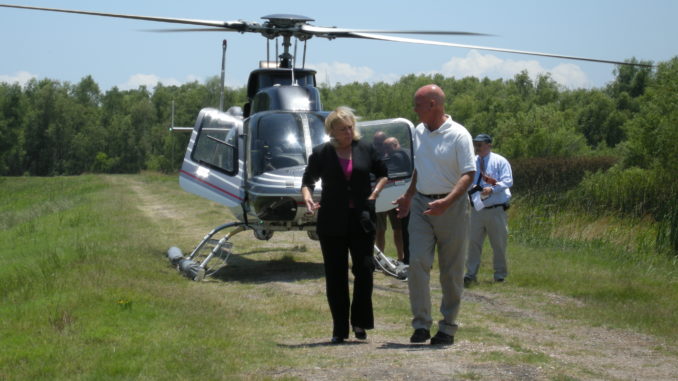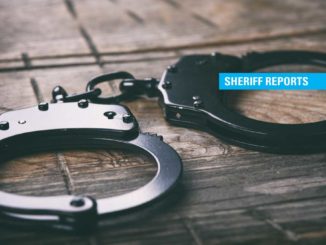
Levee protection in St. Charles important for entire nation, she says
U.S. Sen. Mary Landrieu visited St. Charles Parish last week to tour the West Bank hurricane protection levee system and said that the gaps in levee protection that leave 30,000 people at risk were alarming.
“There are some really substantial gaps in the levee protection for St. Charles Parish,” Landrieu said. “We just received support from the Corps of Engineers for a permit to close one of those gaps, but now the fight is to go back to Washington and get the money from the federal government.
“That’s why slashing and cutting budgets without thought, without care can be harmful to projects underway right here in South Louisiana that are critical.”
Landrieu said that the Corps of Engineers’ budget has had pressure on it for years at the federal level and that it has a back log of $30 billion worth of projects nationwide.
“We’ve got to find a way to invest more money in the Corps of Engineers to build and complete projects like this that are so important and critical, as well as trying to balance the need to balance the budget and close the deficit,” she said.
Landrieu said that levee protection in St. Charles is important for the entire nation.
“It’s not just the homes, it’s the extraordinarily important petrochemical, refinery and maritime structures that are at risk,” she said. “St. Charles is an important parish not just because of the population, but also its workforce that supports these critical infrastructure for the whole nation and that’s why completing these levee projects is very important and why more federal investment, not less, is needed.”
Landrieu said that the state is focusing on two special efforts to find funding for projects, such as levee protection. One effort is to capture 80 percent of the BP penalty funding which will go to wetland restoration, flood protection and other projects.
Another is to accelerate revenue sharing.
“I’ve been saying to members of congress: yes, we support additional domestic drilling both onshore and offshore, but our delegation should not be – and I’m not – supporting additional coastal drilling without revenue sharing for coastal states because we need a portion of that money that’s being generated coming back here to secure the land that is serving as absolutely the host for the industry,” Landrieu said.
Landrieu said that the drilling industry generates anywhere from $5 billion to $10 billion each year in severance and royalties.
“For years that money has been pouring into the federal treasury, yet gaps like this exist in St. Charles Parish,” Landrieu said. “It’s not fair…the good news is we’re making progress. We’ve made a lot of converts, but we’ve got a few more pieces to deliver in terms of legislation so the money can flow to the state.
“Ultimately we’re hoping for $500 (million) to $1 billion a year flowing into Louisiana to complete projects like this all over south Louisiana. That’s the big picture, but in the meantime we’re focused on this gap right here in St. Charles Parish.”
During the aerial tour, Landrieu also got the opportunity to see Valero Refinery, which she said is the largest independent refinery in the nation.
“It really occupies a space of its own. It is really a remarkable facility on 1,000 acres right here in St. Charles Parish,” she said.
Landrieu said the local Valero Refinery was the first refinery to receive a loan guarantee from the U.S. Department of Energy for alternative and clean fuels.
“They’re in the process of taking that loan of about $150 million and using animal fat to convert to transportation fuels,” she said. “It’s really part of our overall effort at the federal level to recognize and invest and support these kinds of projects, so I was pleased to support the stimulus bill, which is where this particular project was funded.”




Be the first to comment